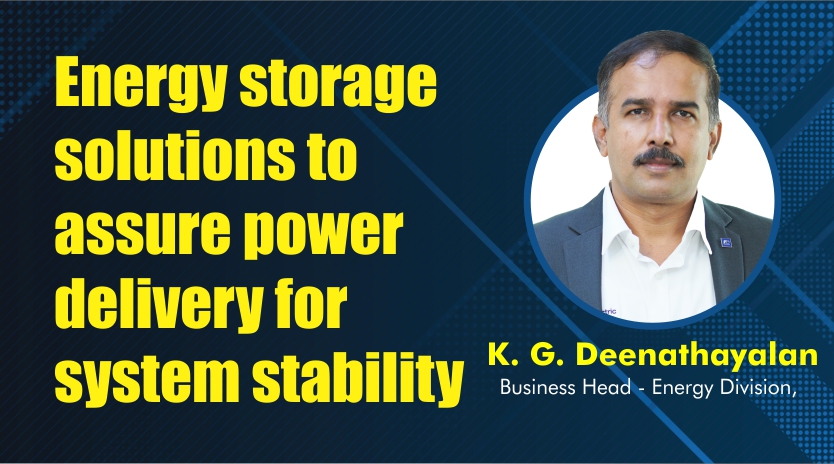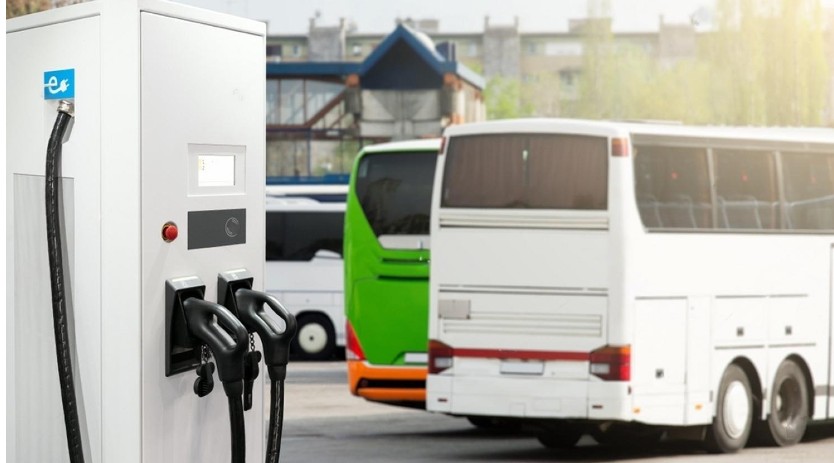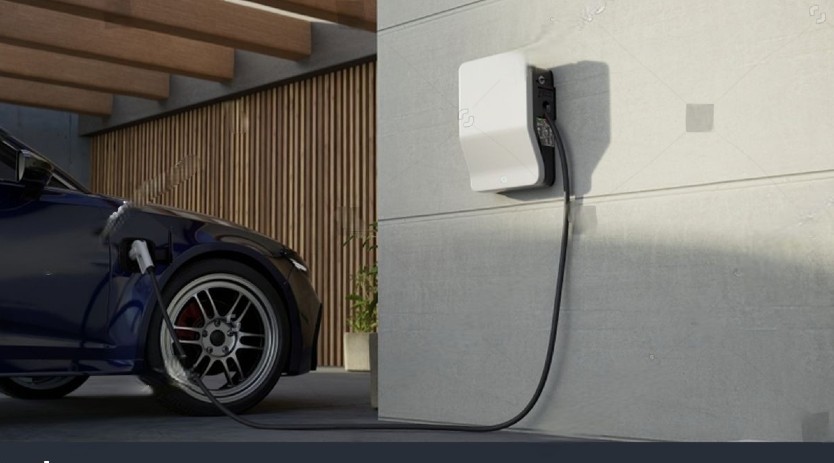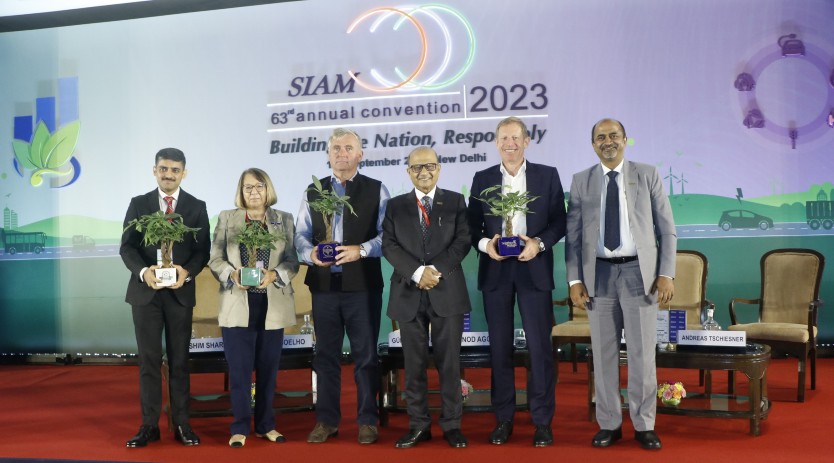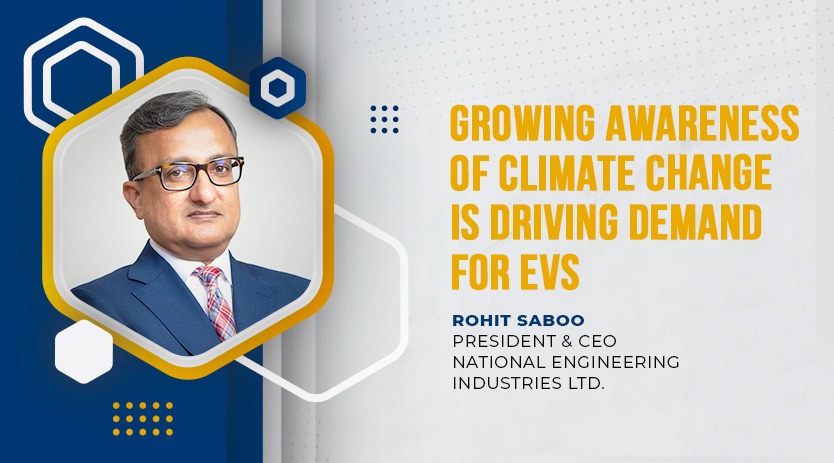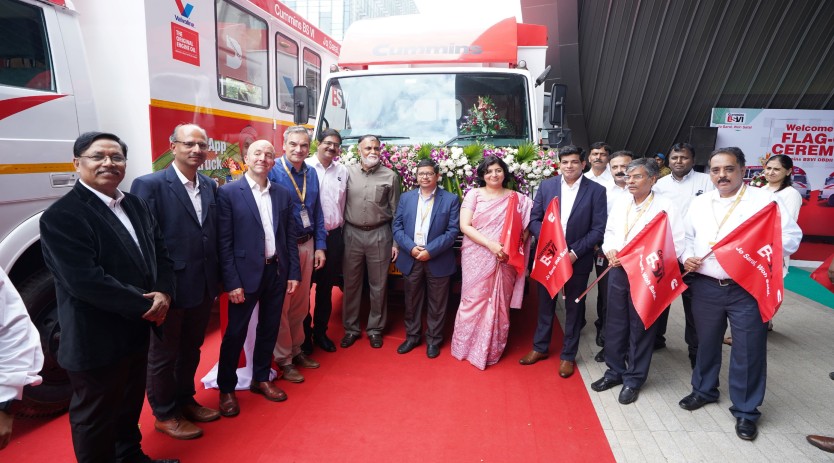Energy storage solutions to assure power delivery for system stability
May 2, 2022 6:57 pm
Effective implementation and usage of ESS in distributed grid requires intelligent and flexible energy management strategies to handle dynamics of distributed systems, says K. G. Deenathayalan
Business Head – Energy Division, Fuji Electric India Pvt. Ltd.
As the world started to walk on the path to Netzero and decarbonized energy systems, the rise of energy storage technologies will be critical for widespread adoption, says K. G. Deenathayalan, Business Head – Energy Division, Fuji Electric India Pvt. Ltd., during discussion with OEM Update.
Growth opportunities available in energy storage and energy management
Advancement in technology ensures power storage and delivery from a few seconds to days/months. But effective management of the distributed energy resources and their storage systems is essential to ensure efficient operation and long service life.
Design engineers will be critical for optimizing the selection, sizing, and siting of ESS. Effective implementation and usage of ESS in the distributed grid requires intelligent and flexible energy management strategies capable of handling the dynamics of distributed systems. Most energy management systems focus on grid power balance and SOC of ESS. Recent research works focus on implementing energy management to minimize operating costs, manage uncertainties and reduce emissions. Application of optimization tools and techniques has enabled the development of flexible and effective energy management strategies. An effective dispatch and management strategy also needs to ensure efficient storage operation so as to enable its full life cycle usage. The challenge is to prioritize these objectives and evaluate an optimum strategy for the considered application that can assure reliable power delivery without affecting system stability.
Furthermore, all the evidence suggests that the energy storage and energy management market will be a highly attractive segment and we will see a lot of further investment in this area.
Energy storage technology boosts manufacturing processes
As mentioned above, the importance of greening the grid and powering the world with renewables is increasing daily. The need for a feasible storage solution is only getting more pronounced. Energy storage aims to capture the energy and effectively deliver it whenever needed.
Since we witness consistent increases in energy prices due to multiple factors, shifting towards energy storage seems more beneficial. It allows flexible generation and delivery of stable electricity to meet the manufacturing demands.
However, the government’s ambitious goals, concerted strategies, and a collaborative approach could help India meet its emission reduction targets while avoiding import dependency on battery packs and cells. This could help establish India as a hub for cutting-edge research and innovation, boost its manufacturing capabilities and foster economic growth.
India’s manufacturing strengths, entrepreneurial and dynamic private sector, and visionary public and private sector leaders will be key factors in realizing these ambitions. Creating a conducive battery manufacturing ecosystem on the fast track could cement India’s opportunity for radical economic and industrial transformation in a critical and fast-growing global market.
Hydrogen storage to address and enhance storage capabilities
According to many researchers, hydrogen has the greatest potential among technologies for seasonal energy storage in the future. It will be a significant enabler for the growth of hydrogen and fuel cell technologies in applications such as stationary power, portable power, and transportation. Since Hydrogen has the highest energy per mass of any fuel, it seems to be the logical choice for the future.
Cookie Consent
We use cookies to personalize your experience. By continuing to visit this website you agree to our Terms & Conditions, Privacy Policy and Cookie Policy.



